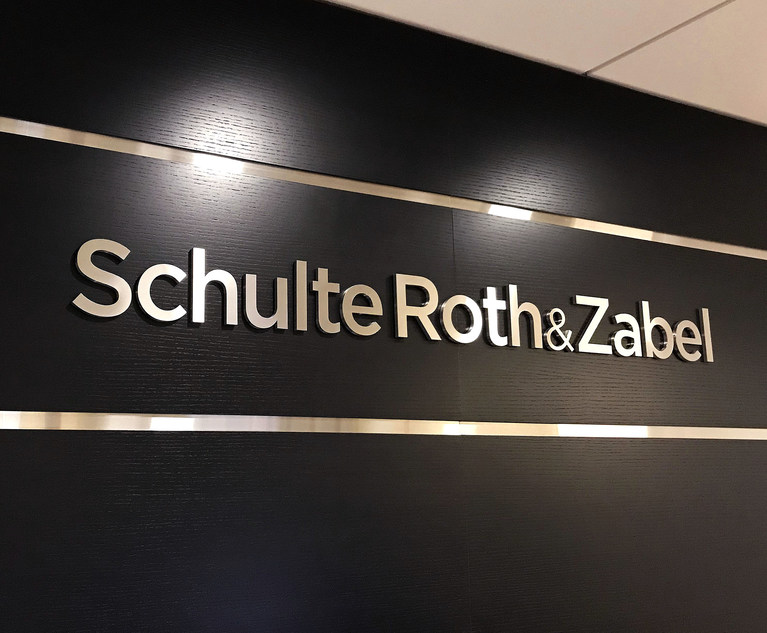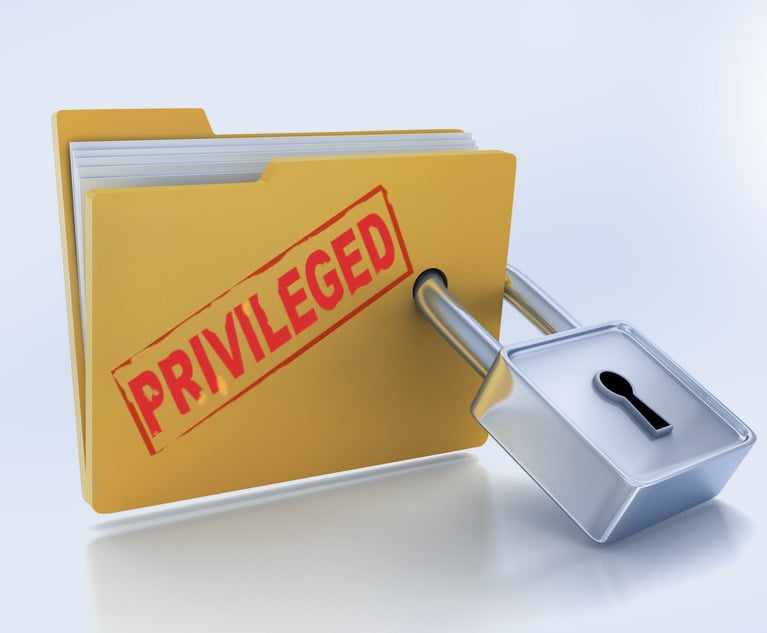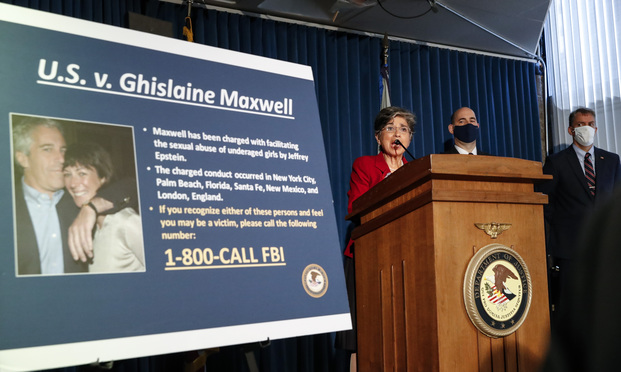Christopher B Harwood

February 21, 2023 | New York Law Journal
Substantial Federal Questions Keep State Law Claims in Federal CourtIn recognition of a century-old practice, the U.S. Supreme Court in Grable & Sons Metal Products v. Darue Engineering & Manufacturing, 545 U.S. 308 (2005), applied the "substantial federal question doctrine" to uphold the removal to federal court of a case that absent application of the doctrine would not have been subject to removal, contributors Edward M. Spiro and Christopher B. Harwood write.
By Edward M. Spiro and Christopher B. Harwood
9 minute read

December 22, 2022 | New York Law Journal
Law Firms Are Not Just 'Any Person'Courts sometimes will not apply statutes in accordance with their literal terms when doing so would contravene other policies. That is precisely what occurred in 'Astraea'.
By Edward M. Spiro and Christopher B. Harwood
7 minute read

October 17, 2022 | New York Law Journal
Be Careful What You AdmitA party entering into an agreement with the government must be mindful of the precise phrasing of any factual admissions and any agreements regarding what the party thereafter will not contradict.
By Edward M. Spiro and Christopher B. Harwood
9 minute read

August 15, 2022 | New York Law Journal
No Work Product Privilege Among Potential AdversariesThe ruling in 'Pilkington' bespeaks caution to parties considering sharing work product with a party who may later become an adversary.
By Edward M. Spiro and Christopher B. Harwood
9 minute read

June 22, 2022 | New York Law Journal
Judicial Review of an Arbitrator's Privilege RulingsAlthough courts have discretion to adjudicate the merits of privilege objections to an arbitral subpoena, courts may decline to exercise such discretion, as Judge Rakoff did in 'Turner v. CBS Broadcasting'.
By Edward M. Spiro and Christopher B. Harwood
9 minute read

April 18, 2022 | New York Law Journal
The Psychotherapist Privilege Applies to Nonverbal CommunicationsIn this edition of their Southern District Civil Practice Roundup, Edward M. Spiro and Christopher B. Harwood analyze the holding in 'United States v. Ray', in which Judge Liman recently addressed the application of the psychotherapist privilege to nonverbal communications. Although 'Ray' is a criminal case, its holdings apply equally to civil actions.
By Edward M. Spiro and Christopher B. Harwood
9 minute read

February 14, 2022 | New York Law Journal
Imputing the In-Forum Contacts of a Predecessor Entity to Its SuccessorUnder settled Second Circuit law, a court may impute to a successor the in-forum contacts of its predecessor when the successor acquired the predecessor's liabilities through a merger or its equivalent. In 'Suez Water New York v. E.I. du Pont de Nemours & Co.', Southern District Judge Lewis J. Liman recently addressed the related question of whether the in-forum contacts of a predecessor can be imputed to its successor in a non-merger context.
By Edward M. Spiro and Christopher B. Harwood
9 minute read

December 13, 2021 | New York Law Journal
When the Disclosure of Privileged Communications Does Not Constitute a WaiverIn this edition of their Southern District Civil Practice Roundup, Edward M. Spiro and Christopher B. Harwood discuss a recent decision that addressed three notable exceptions to the third-party waiver rule.
By Edward M. Spiro and Christopher B. Harwood
7 minute read

October 18, 2021 | New York Law Journal
Determining the Citizenship of Trusts for Diversity JurisdictionIn this edition of their Southern District Civil Practice Roundup, Edward M. Spiro and Christopher B. Harwood discuss a recent decision in which Magistrate Judge Robert W. Lehrburger recently addressed whether a trust's citizenship depends on the citizenship of its trustee(s), its beneficial owner(s), or both.
By Edward M. Spiro and Christopher B. Harwood
9 minute read

August 16, 2021 | New York Law Journal
Protective Orders Provide Only Illusory Protections to Civil Litigants With Potential Criminal ExposureFor civil litigants whose conduct has criminal implications, a substantial risk exists that the materials will find their way into the hands of a government prosecutor. In this edition of their Southern District Civil Practice Roundup, Edward M. Spiro and Christopher B. Harwood explore the issue in the context of the recent decision in 'United States v. Maxwell'.
By Edward M. Spiro and Christopher B. Harwood
10 minute read
Trending Stories
- 1Daniel Habib to Serve as Next Attorney-in-Charge of NY Federal Defender Appeals Unit
- 2Protecting Attorney-Client Privilege in the Modern Age of Communications
- 3High-Profile Sidley M&A Partner Heads to Covington
- 4Stars and Gripes: Firms Need a 'Superstar Culture' to Crack the U.S. Market
- 5BCLP Exploring Merger Prospects as Profitability Lags, Partnership Shrinks
More from ALM
- Legal Speak at General Counsel Conference East 2024: Match Group's Katie Dugan & Herrick's Carol Goodman 1 minute read
- Legal Speak at General Counsel Conference East 2024: Eric Wall, Executive VP, Syllo 1 minute read
- Legal Speak at General Counsel Conference East 2024: Virginia Griffith, Director of Business Development at OutsideGC 1 minute read



